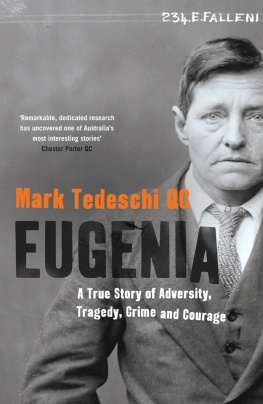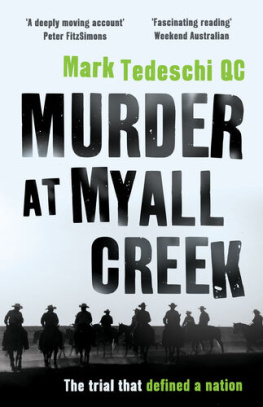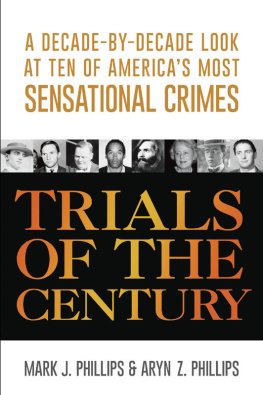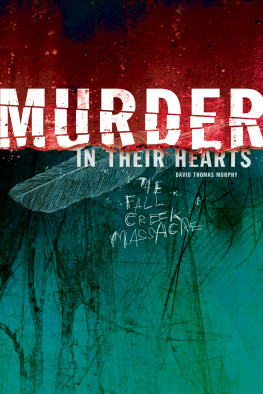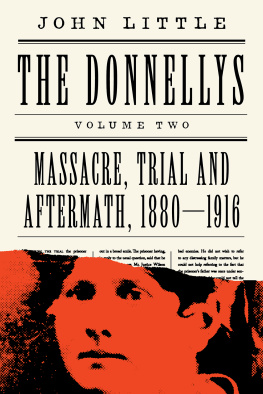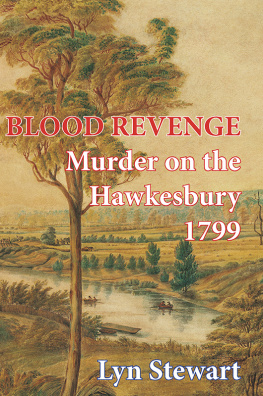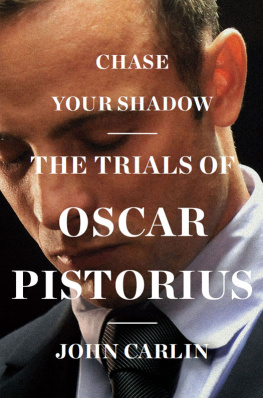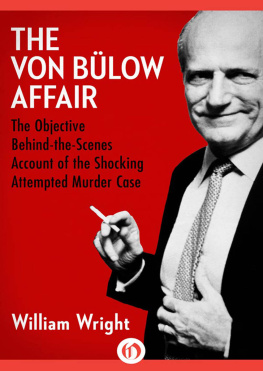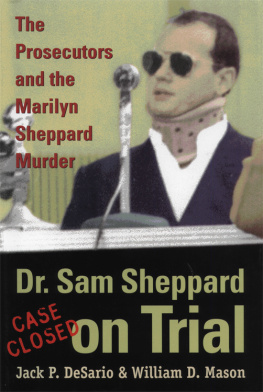Praise for Murder at Myall Creek
The Myall Creek massacre is a stain on our nations soul, with the only positive note being that the law brought the evil perpetrators to justice in a key trial that was a foundation stone for the integrity of our legal system. This wonderful book brings that trial, and the marvellous prosecutor, John Hubert Plunkett, back to life.
Peter FitzSimons
A much needed and appreciated historical insight into the profession of a man who gained respect through the colonial era of Australia and his fight for justice through the law for my people, the Kamilaroi.
Aunty Noeline Briggs-Smith OAM, Aboriginal researcher
Tedeschis narrative and portrayal of John Plunkett is evocative and intense... [Plunkett was] a very remarkable man.
Kelvin Brown, Anaiwan Peoples of the Gamilaroi Nation
a considered and elegant work
Bookseller and Publisher
Praise for Kidnapped
Masterfully pieced together by the New South Wales Senior Crown Prosecutor
Daily Telegraph
A broad-brush morality tale about the consuming power of greed
Sydney Morning Herald
Praise for Eugenia
Crown Prosecutor and barrister Mark Tedeschi QC has drawn on a wealth of legal knowledge and insight
Courier-Mail
an outstanding new true-crime story...
Sunday Age
I dedicate this book to my immigrant grandparents, Ernest and Margaret Curtis (Cohn), and Guido and Rosina Tedeschi, who took the bold and enlightened decision in 1939 to come to Australia, fleeing Nazism, fascism, discrimination and persecution.
To cheapen the lives of any group of men, cheapens the lives of all men, even our own. This is a law of human psychology, or human nature. And it will not be repealed by our wishes, nor will it be merciful to our blindness .
William Pickens
African-American orator, educator, journalist, essayist and son of liberated slaves
ACKNOWLEDGEMENTS
For a third time I must acknowledge the inspiration and encouragement of my friend and literary mentor, Alan Gold, who encouraged me to continue writing this book at a time when I was doubtful about its viability. His generosity with his time and his honesty with his comments are much appreciated, as is his and his wife, Evas, friendship and hospitality.
I thank Judge Greg Woods QC of the District Court of New South Wales, who many years ago was my inspirational legal history lecturer at Sydney University Law School, and who in recent times discussed with me some of the more complex issues of legal history associated with this book.
I pay tribute to Emeritus Professor Bruce Kercher of Macquarie University, who was responsible (with a team) for publishing online the records of decisions made by the superior courts of New South Wales during the colonial period.
I thank Reverend Donald Richardson, the Dean of St Marys Cathedral in Sydney, for help in locating the Chalice of Saint Oliver Plunkett and giving me the opportunity to photograph it.
I wish to acknowledge Peter Hodges of Tea Gardens and his sister, the late Christine Jones, a former police officer, who brought John Henry Fleming to my attention.
I thank Cassie Mercer and Ben Mercer, respectively past and present editor and proprietor of the dynamic Australian magazine Inside History for their enthusiasm for my historical writings over many years.
I pay tribute to Cindy Jones, for her research assistance, her suggestions on my first draft, and her help in locating Archbishop Plunketts chalice. Her passion for the project gave me the confidence to believe that others would want to share our knowledge of the remarkable John Hubert Plunkett.
I also wish to thank Peter FitzSimons for his generous comments about the book.
I sincerely thank Aunty Noelene Briggs-Smith OAM and Kelvin Brown, both elders of the Gamilaroi nation, for reading my first draft and making some helpful suggestions.
I thank Wayne Gleeson of the Legal Studies Association of New South Wales for his helpful comments on my first draft and I express my gratitude to him and his wife, Julie, for their continuing support of my three true-crime books.
I thank my publishers, Simon & Schuster Australia, and in particular Larissa Edwards, Roberta Ivers, Anabel Pandiella and Anna OGrady, for their encouragement and support.
Finally, I thank my wife, Sharon, for her patience during the lengthy periods of our holidays and weekends when I was preoccupied with the story of John Hubert Plunkett and the Myall Creek murder trials.
Mark Tedeschi AM QC
PREFACE
I cannot remember when I first became aware of John Hubert Plunkett, the Solicitor General and Attorney General of New South Wales from 1832 to 1856, but I do still recall my initial surprise that a man who had such a profound influence on the colony and was responsible for so many reforms and innovations is so unknown to society at large. That surprise did not dissipate over the years and at some stage I resolved that I would write an easily accessible version of his life story in an attempt to disseminate to the public his well-deserved reputation as one of Australias unsung heroes and possibly our most important advocate of human rights of all time.
John Plunketts greatest challenge was to prosecute those responsible for the murders of twenty-eight Aboriginal men, women and children at Myall Creek in the New England district of northern New South Wales. Unusually for the times, there were two trials that arose from the massacre, and both provoked enormous controversy and hostility throughout the colony towards the prosecutor. The powerful forces of the landowning settlers were pitted against him, causing endless difficulties. While a considerable number of books and articles have referred to this massacre, to my knowledge there has not been any analysis of the difficult tactical and legal decisions that John Plunkett took in pursuing justice for those who had been murdered. As I explain in this book, the trials were more akin to modern-day war-crimes trials than to domestic murder trials, even though the concept of war crimes lay more than a hundred years in the future. Plunketts approach to these prosecutions was innovative and bold in equal measure. He faced massive difficulties in overcoming bigotry and vested interests and, in many respects he had both hands tied behind his back. The biggest hurdle was that despite the fact that there had been an eyewitness to the massacre, the law prevented that person from being called to give evidence in court. Plunkett spent the next twenty-five years trying to remedy this deficiency in the law.
It is not possible to understand John Plunketts achievements in New South Wales or his conduct of the Myall Creek murder trials without knowing about his background in Ireland. His early years there came at a time of gradual emancipation for Catholics, however, as an Irish Catholic lawyer he still faced considerable discrimination and impediments under the law that he had sworn to uphold. This was a major reason he accepted a prominent government posting in New South Wales. By the time of his arrival, he was adamant that the colony should not experience the same issues of religious discrimination under the law that he and his Catholic colleagues had experienced in Ireland. His whole life can be seen as an attempt to create a society in which the law and all public institutions treated everyone equally.
In attempting to bring to greater prominence the remarkable achievements of John Hubert Plunkett, I have referred to the writings of many other people whom I have listed in the bibliography, but none more so than the two authors of specialist books on Plunkett: John Molony and Tony Earls. Where I have inferred Plunketts thoughts, motives and emotions, they are entirely my own supposition, based upon the known facts and my own analysis of the man and his times.
Next page

